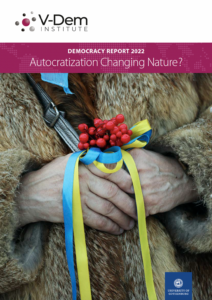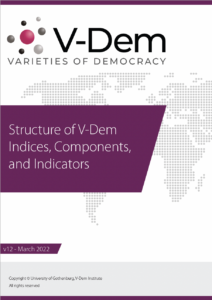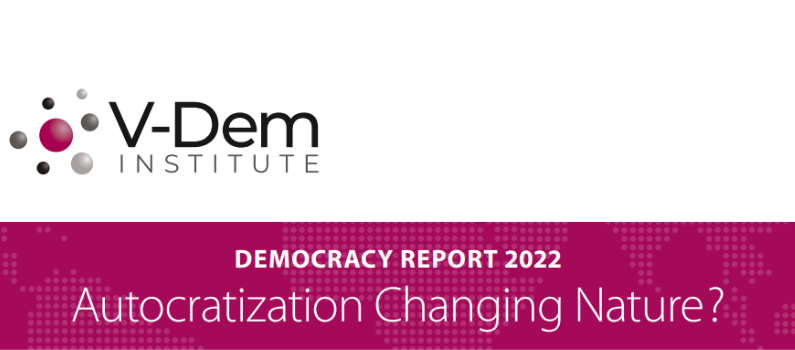 Only 34 of the earth’s 195 states are liberal democracies — where citizens enjoy free speech, free press, free and fair elections, and other liberties — according to the latest study by the Varieties of Democracy (V-Dem) Institute.
Only 34 of the earth’s 195 states are liberal democracies — where citizens enjoy free speech, free press, free and fair elections, and other liberties — according to the latest study by the Varieties of Democracy (V-Dem) Institute.
As the quality of democratic institutions and governance has eroded, leading to widespread declines in citizen satisfaction, authoritarians leaders have moved to consolidate power domestically and influence political systems abroad, trying to sell autocratic ideas as viable alternatives to what they label a decaying system of governance, note IFES analysts Fernanda Buril and Cassandra Emmons.
The truth, however, is that, despite flaws and setbacks, democracies continue to outperform non-democratic regimes across key development areas, such as economic growth, peace and security, education, health, social protections and social cohesion, gender equality and climate change, they add. The V-Dem Institute’s new project “The Case for Democracy” gathers the evidence on what and how democracies deliver better than non-democracies in a series of policy briefs that paint a robust and strikingly positive picture of democracy’s advantages, they  add:
add:
- Democracies are better at providing public goods such as access to water, electricity and internet;
- Democracies tend to have higher gross domestic product (GDP) per capita;
- After transitioning to democracy, countries tend to observe a three percent average increase in life expectancy and a 94 percent lower infant mortality rate compared to dictatorships; and
- Democracy has also proven to be more effective at dealing with emerging challenges such as climate change, which is increasingly affecting quality of life.
V-Dem’s work consolidating these scholarly findings and disseminating them among the community of practice is extremely important for two major reasons, say Buril and Emmons:
- First, it provides overwhelming, objective evidence that democracies – and especially full democracies with strong rule-of-law cultures – can provide a better quality of life for all people.
- Second, it reminds donors, implementers and recipients of democracy assistance that, although the benefits are certain, they are not immediate. Democracy takes time and effort to build, and its consolidation is never final or permanent, especially when autocratic actors ramp up efforts to undermine it.
The V-DEM findings offer an opportunity to consider how democracy champions can leverage data to both debunk the autocratic narrative and to fight for democracy and guarantee its benefits, domestically and globally. The International Foundation for Electoral Systems (IFES) and V-Dem host a virtual discussion on V-Dem’s 2022 report and trends in autocratization and democratization on April 7 at 1:30 p.m.
Speakers: Dr. Staffan Lindberg – Director, V-Dem Institute; Dr. Cassandra Emmons – Democracy Data Analyst, IFES; Dr. Fernanda Buril – Research Specialist, IFES, and former NED Penn Kemble fellow. Moderator: Chad Vickery – Vice President, Global Strategy and Technical Leadership. RSVP here.








